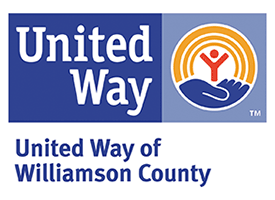BBBS’ Big Futures Program
Big Brothers Big Sisters of Central Texas exists to help children achieve success in life through one-to-one mentoring. BBBS currently serves children ages 6 to 18 years of age, and the agency’s formal relationship with each match ends when a Little becomes 18 years old or graduates from high school. However, a new program called Big Futures may extend the length and type of services that BBBS provides for Bigs and Littles.
“By closing matches at 18 or at graduation, we are missing out on the opportunity to positively impact our young people as they are entering adulthood – one of the most pivotal times in their lives,” said Joe Strychalski, BBBS’ Vice President of Programs.
Big Futures will offer on-going support to Bigs and Littles beyond the high school years, help Littles fully utilize BBBS’ Scholarship Program, and provide additional resources and support regarding post-secondary education and career readiness.
A handful of matches whose Littles graduated from high school last year are currently working with BBBS to develop and define this new program as a pilot project.
“Many of our young people come from challenging backgrounds and are often the first in their families to attend college,” Joe continued. “Our goal, especially in the early stages of this pilot, is simply to better understand the needs of our young people as they transition into adulthood and to continue offering support, encouragement and guidance to help them get where they want to go.”
Eventually, Joe sees the program providing resources and training to students in middle and high school as well.
Big Brother John and his Little Brother Jaylon are involved in the Big Futures pilot program. Although Jaylon is a college freshman in Alabama and John doesn’t see him as often as he did during Jaylon’s high school years, the two are still in contact. John is currently providing support to help Jaylon stay focused on his goals in veterinary science.
“Big Futures is a great idea,” John said. “With BBBS’ current age limits for matches, you help someone get through high school and then it’s like ‘Hey, good luck in college.’ And college is a really different animal, with a lot more freedom and responsibility. If kids need a helping hand to get through grade school and high school, they are likely to need support as they transition to college.”
Rob Richardson, a Big Brother and benefits specialist at the University of Texas at Austin, agrees. Rob has worked in the college environment for over 16 years, spending a large portion of that time training resident advisors and, more recently, working with student judicial services. Rob has counseled students on everything from roommate conflicts to allegations of cheating to police charges.
“The years between ages 18 to 22 are a crucial developmental time,” Rob remarked. “This is when students are building habits they will have for a lifetime, they are in transition getting new class schedules every three months, and they are learning to create structure for themselves for the first time. The Big Futures program will provide Littles with consistency and support during these years.”
“Support is so important, especially in the first year of college when students are making decisions about their majors and how to spend their time,” Rob continued. “I’ve seen students fall into the trap of wanting to do everything, and then I’ve seen the opposite, students who have trouble engaging with the campus community. Continuing the BBBS relationship will offer Littles stability as they are developing ideas about the world and about their purpose.”
BBBS’ pilot project is currently focused on identifying the most important issues and needs that young people have following high school. The agency will then work on developing a range of tools, activities, and resources to support Littles as they navigate their respective paths toward adulthood.
Helping students prepare for success doesn’t just mean college prep work either. Big Futures will support youth around the three “E’s” – Education, Employment and Enlistment. The program will serve as a resource for students wanting to attend college, enter the job market immediately after high school, or enlist in military service. Matches will be able to access information on job readiness, resume building, work/life skills, and enlistment requirements.
“We recognize that we are not the experts in any of these areas and we don’t want to be,” Joe explained. “There are numerous agencies doing fantastic work in each of these realms. Our goal is to guide young people to the most useful resources for them.”
“This is one of the most exciting things I’ve experienced in my 9+ years at BBBS,” Joe concluded. “This program will give us the opportunity to truly experience the life-changing power of mentoring as our youth transition from childhood into adulthood. Big Futures will allow us to help Littles use the confidence, skills and aspirations that they’ve built through their matches as they move toward achieving the ‘success in life’ that our Vision proclaims.”
If you’d like more information on this or other BBBS programs, please contact us at 512-472-5437 or visit our website at www.Bigmentoring.org








